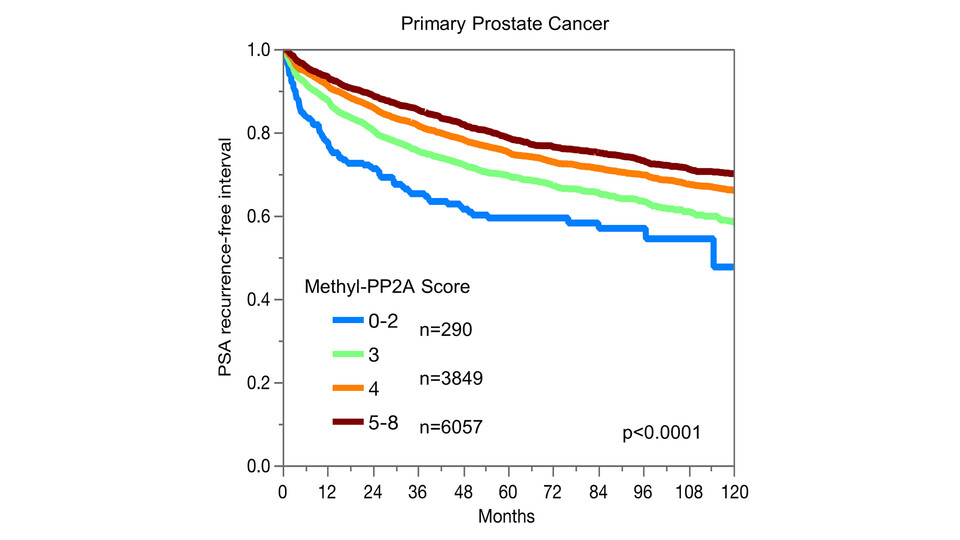

Hyperactivation of the PI3K/AKT pathway downstream of growth factor receptors is frequently observed in human cancers. This includes loss of the tumor suppressor gene pten, a lipid phosphatase responsible for attenuating PI3K/AKT signaling and a common hallmark of prostate cancer. The resulting hyperactivation of PI3K signaling is counteracted in the cell by protein phosphatases, including protein phosphatase 2A (PP2A). Active PP2A is a heterotrimer consisting of a scaffold subunit (A), a regulatory subunit (B), and a catalytic subunit (C). The stability of PP2A complexes depends critically on the carboxymethylation of the C-terminal leucine in its catalytic subunit, a post-translational modification catalyzed by LCMT1.
For three decades it has been believed that inactivation of PP2A in cancer cells occurs through tyrosine phosphorylation at the C-terminus of its catalytic subunit. However, this model of PP2A inactivation was challenged in 2020, when the Ogris lab published evidence that none of the commercially available antibodies against this modification is specific for tyrosine-phosphorylated PP2A-C. Those antibodies, in fact, recognize the non-methylated C-terminus of PP2A-C. In their new study, the authors identify methylated PP2A as a novel prognostic marker in prostate cancer and LCMT1 loss as a driver of androgen-addicted prostate cancer progression. Group leader Egon Ogris explains: “From our previous findings, I wondered whether methylated PP2A could be used as a surrogate marker for the levels of tumor-suppressive PP2A present in cells.”
In collaboration with the Eppendorf clinic in Hamburg, the largest prostate cancer center worldwide, and two labs at the Universities of Michigan and Pennsylvania, the team provide evidence to support this hypothesis. A key asset for the study was a highly-specific monoclonal antibody against methylated PP2A-C developed by the Ogris lab. Using this antibody as a tool for detecting active PP2A, the team show that loss of LCMT1 leads to fewer tumor suppressive PP2A complexes, while in androgen-addicted prostate cancer, low methylated PP2A levels lead to increased AR-dependent target gene transcription and cell proliferation.”
The identification of methylated PP2A as a prognostic marker suggests a previously unappreciated therapeutic potential for drugs that stabilize PP2A heterotrimers. Indeed, the authors show that treatment with a small molecule activator of phosphatase (SMAP), a compound that stabilizes PP2A heterotrimers, suppresses AR signaling and inhibits tumor growth in a mouse model. The results of the study may lead to novel therapies for advanced prostate cancer.
DOI: 10.1038/s41467-023-40760-6